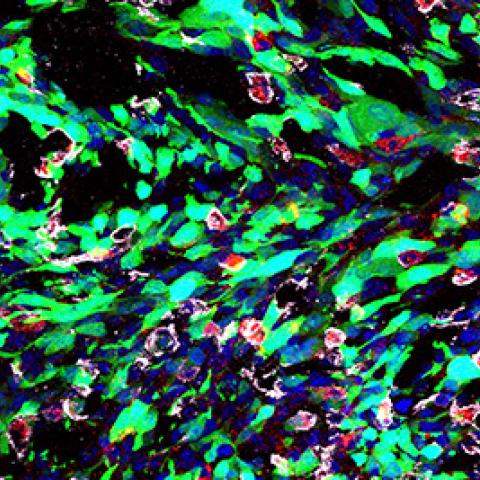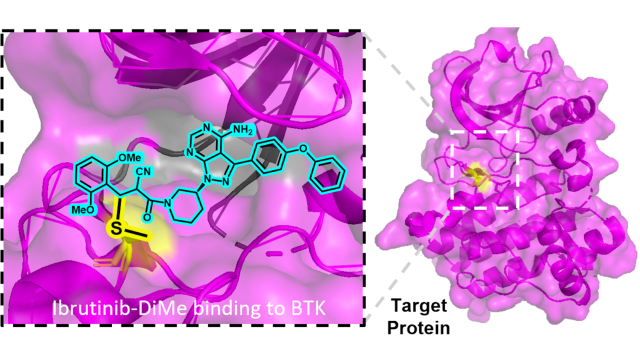
Nanoparticles in the brain
Photo courtesy of NCI Visuals Online
The U.S. Food and Drug Administration granted orphan drug status in December to zotiraciclib for use in patients with glioma, a cancer of the brain that begins in glial cells (cells that surround and support nerve cells). Gliomas comprise about 30 percent of all brain and central nervous system tumors and 80 percent of all malignant brain tumors, and the types of gliomas include astrocytoma, ependymoma, glioblastoma and oligodendroglioma.
This designation is based on results from an ongoing NCI-sponsored phase 1 trial at the NIH Clinical Center. Jing Wu, M.D., Ph.D., Investigator in the Neuro-Oncology Branch (NOB), led the trial to evaluate zotiraciclib plus temozolomide for the treatment of recurrent anaplastic astrocytoma and glioblastoma.
Orphan drug designation is given to therapies that treat, prevent or diagnose rare diseases. Although this designation does not necessarily mean that the treatment will be approved by the FDA or reach patients faster, it enables the drug’s developers to receive incentives such as tax credits and provides them exclusive rights for seven years to further the treatment’s potential for that condition.
Wu’s team is now working with Mark Gilbert, M.D., NOB Branch Chief, to open the phase II study of zotiraciclib plus temozolomide versus temozolomide alone in recurrent high grade glioma patients through the Brain Tumor Trials Collaborative.


